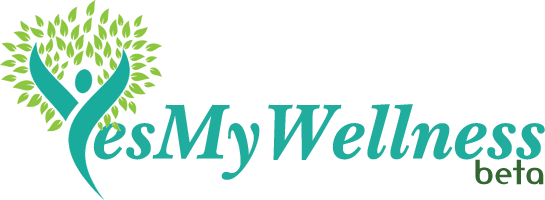Why and When to Take Dietary Supplements
Why and When to Take Dietary Supplements
Share
It is always better to get your nutrition from eating a variety of healthy foods. However, daily multivitamin and multimineral supplements may help to fill gaps created by less than perfect eating habits and metabolic changes that occur naturally with age.
Research indicates that there are also good reasons for using a variety of supplements, including herbs, for both prevendon and healing.
We list out some scenarios or situations where you may require supplementation.
Ease Joint Pain With Fish Oils
The fat in fish contains a class of polyunsaturated fatty acids called Omega-3. Omega-3 play an important role in a range of vital body processes, from regulating blood pressure and blood clotting to boosting immunity and they appear to reducde the risk of heart disease. Omega-3s are also effective anti-inflammatories, useful for joint porblems, lupus and psoriasis.
If you eat oily fish at least twice a week, fish-oil supplements may not be necessary but for people with rheumatoid arthritis have been shown to experience less joint swelling and stiffness when they take fish-oil supplements.
The Importance Of Vitamin D
Also known as the ‘Sunshine Vitamin’ as it is produced in the skin upon exposure to light, Vitamin D may help to protect against more than a dozen types of cancer, help to maintain strong bones, reduce the risk of developing Type 2 diabetes and multiple sclerosis, and improve immunity and brain function, among other benefits, according to research.
If one is usually indoors i.e. office workers which are not exposed to much sunlight, one should get an extra 1000IU (IU = International Units) per day from food or supplements. Others should aim to have at least 400IU a day.
Are You Getting Enough Iron?
Feeling lethargic most of the time? You could have iron-deficiency anaemia, a common cause of fatigue. Iron is essential for producing haemoglobin, which carries oxygen to your body’s cells, where it’s used to produce energy.
Good food sources of iron are red meat, iron-fortified breakfast cereal, green leafy vegetables, nuts and legumes. You may also opt for some off-the-shelf iron supplements but do consult with your doctor first whether you really need it.
Boost Your Immune System With Echinacea
A natural antibiotic and infection fighter, echinacea can help to prevent the two most common ailments, which is, cold and flu. The herbal supplement acts by stimulating immune-system cells that are key weapons against infections.
It is most effective when taken at the first hint of illness. It is also useful if you are already suffering from the aches, pains, congestion or fever of colds and flu.
Where Is Your Calcium ?
Getting enough calcium throughout life is a centrai factor in preventing osteoporosis, the bone-thinning disease that leads to a higher risk of fractures, spinal deformities and loss of height.
We need around 800mg a day of elemental calcium through food or supplements to maintain good health. That said, many modern diets are severely lacking in calcium which may necessitate taking some form of calcium supplement.
When taking a calcium supplement, choose calcium citrate, which is better absorbed than calcium carbonate. However, calcium citrate contains less elemental calcium, so you may need to take more of it.
Calm Yourself With Ginseng
Derived from a slow-growing root, ginseng has been used in Chinese medicine, for thousands of years to enhance both longevity and the quality of life. It has anti-oxidant properties and stimulates the production of specialised immune cells called ‘killer-T cells’, which destroy harmful viruses and bacteria.
Ginseng is also prized for its ability to protect the body against the effects of stress. In fact many long-distance runners and body-builders take ginseng to boost physical endurance.
Take Peppermint For Indigestion
Peppermint is a traditional remedy and it works for all kinds of intestinal disturbances, from indigestion to flatulence. Peppermint oil stimulates the secretion of digestive juices and improves the flow of bile, helping the body to digest fats. However, don’t take peppermint supplements if you have heartburn or reflux disease as it could make worsen the condition.
Combat Memory Loss With Ginkgo Biloba
Extracted from the leaves of an ancient tree, ginkgo biloba is said to benefit both the circulatory and central nervous system. It may increase blood flow to the arms and legs and the brain by regulating the tone and elasticity of blood vessels.
Diminishing blood flow has been linked to memory loss and dementia, as well as depression, anxiety, headaches, depression, confusion, tinnitus and dizziness.
Don’t Forget The Inconspicuous Zinc!
Zinc is critical for hundreds of processes that take place in the body from cell growth to sexual maturation and immunity and even for taste and smell.
As such, everyone who takes a daily multivitamin and mineral supplement should make sure that these supplements contains zinc. Not too much zinc though as excess of zinc can be harmful!
Other than the above benefits, taking zinc can help to treat colds, flu and other infections and may also help to treat a wide range of chronic ailments, from rheumatoid arthritis and underactive thyroid to chronic fatique and osteoporosis.
Extra Tip : Do Not Take Supplements With Coffee Or Other Caffeinated Drinks
Do not drink tea or coffee for 15 minutes before or after taking supplements. This is because caffeine seems to interfere with your body’s ability to absorb calcium, manganese, zinc and copper as well as vitamins A, B and C. Instead, take supplements with plain water at room temperature.
Other the other hand, consuming supplements with food reduces the chance that they will upset your stomach, as well as improving the absorption of minerals.
You Might also Like




















